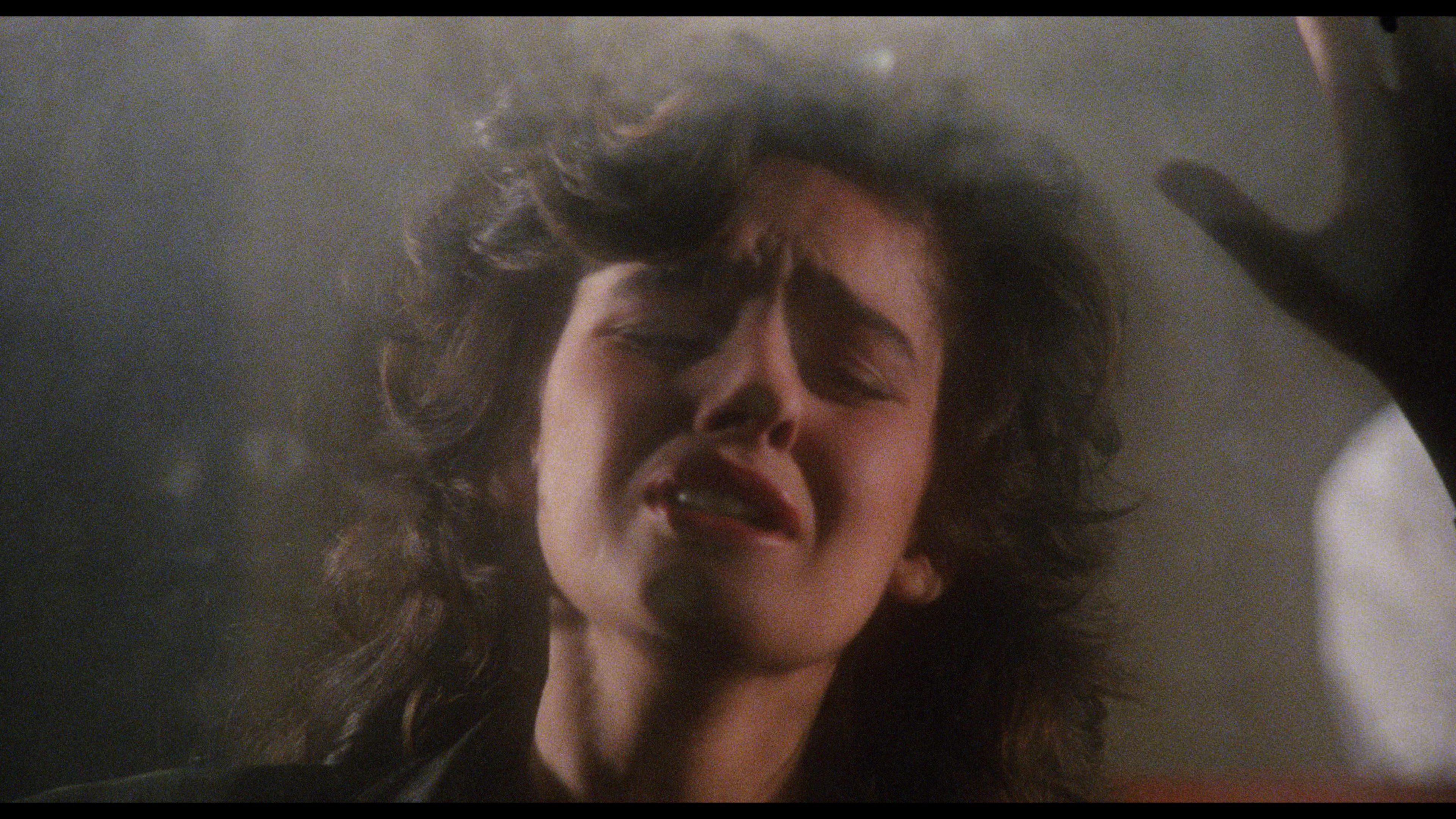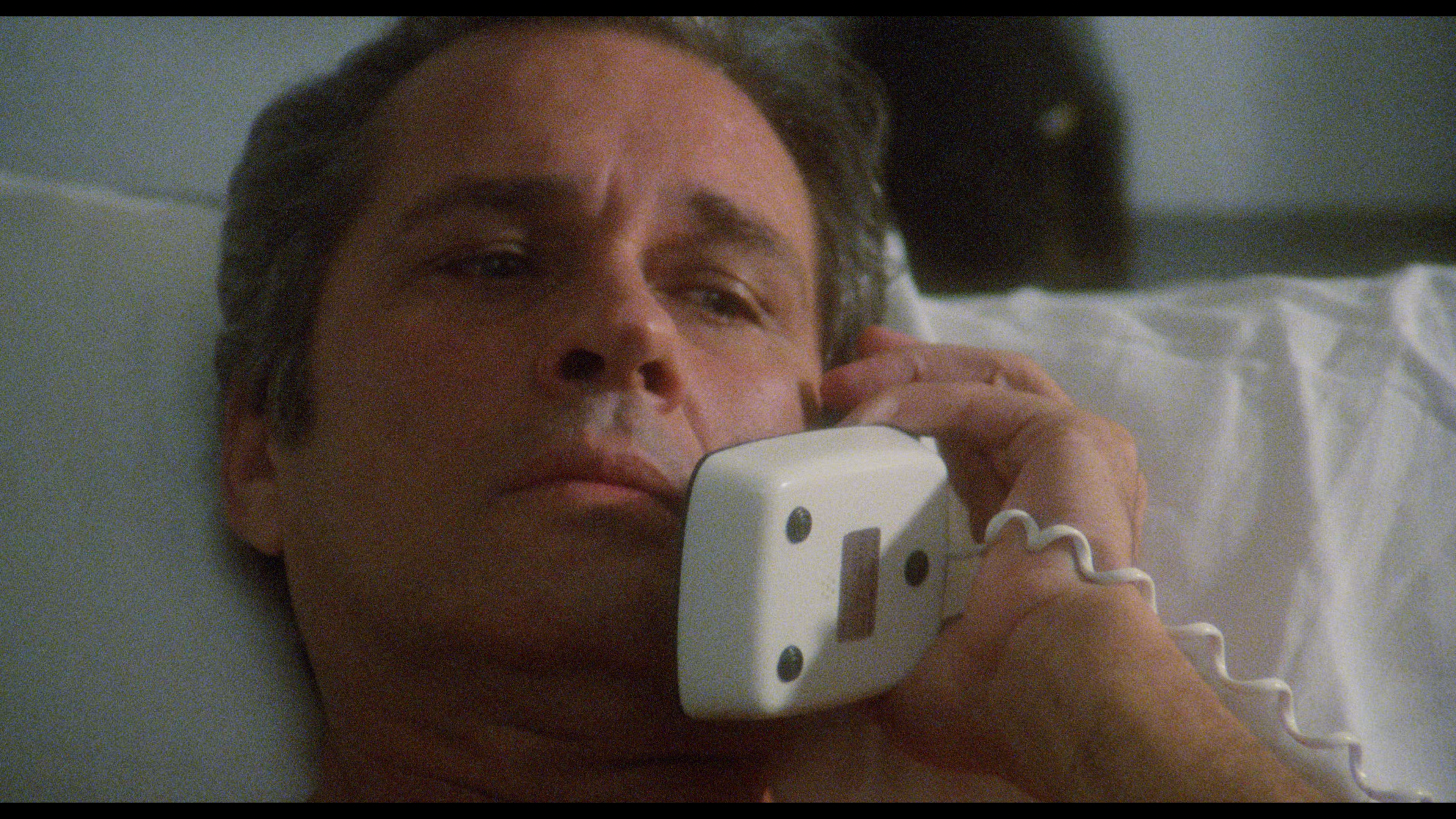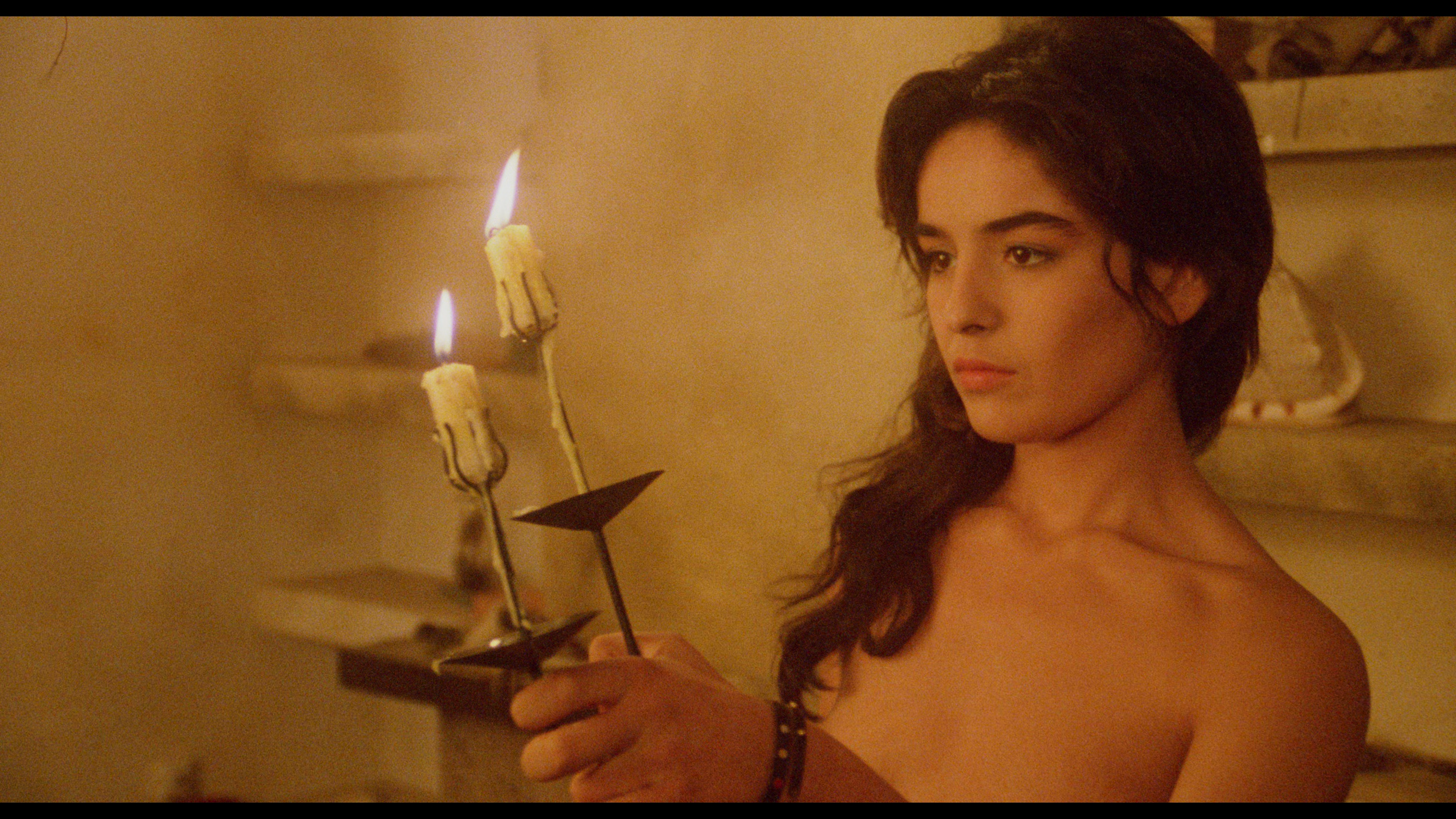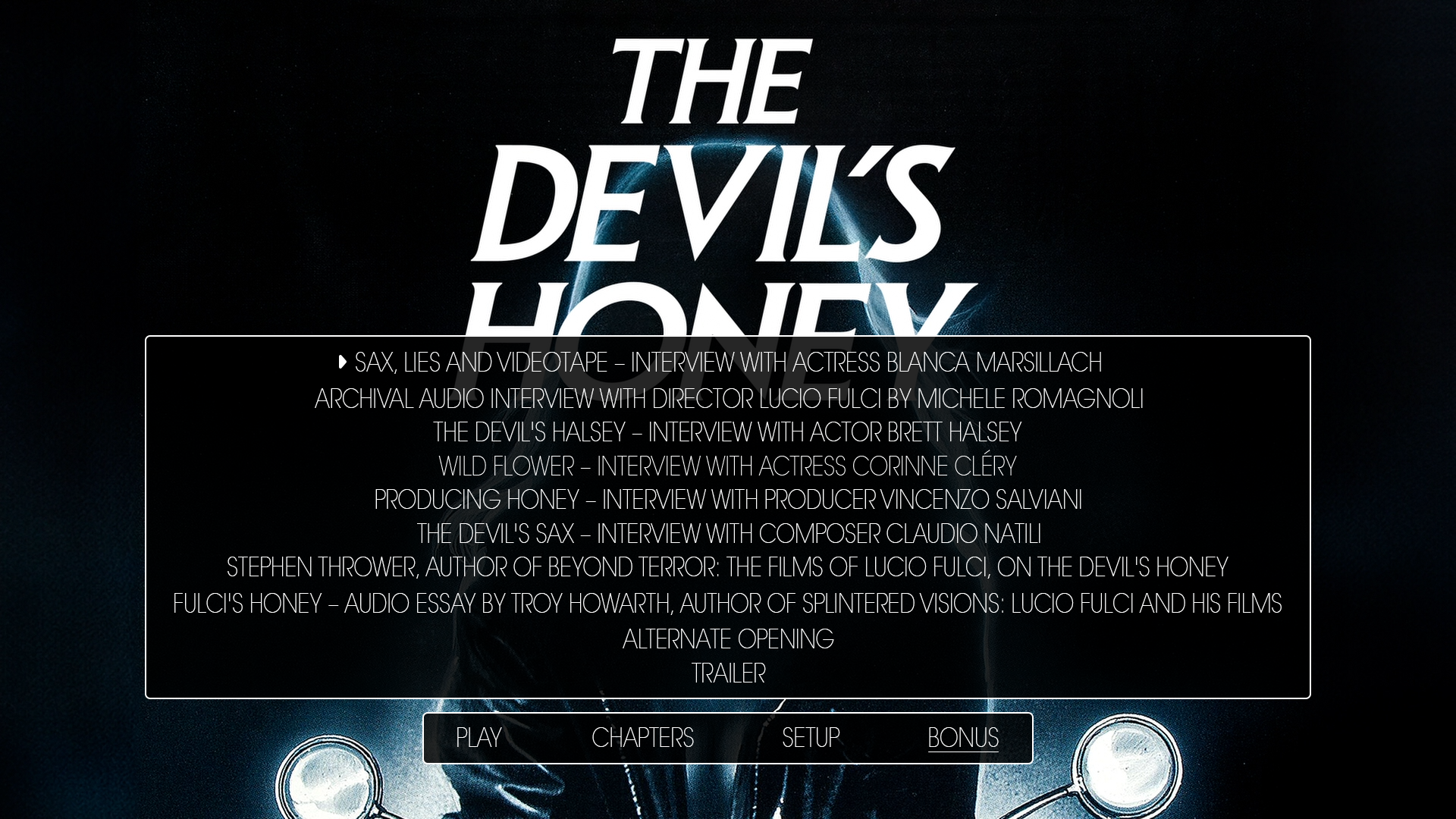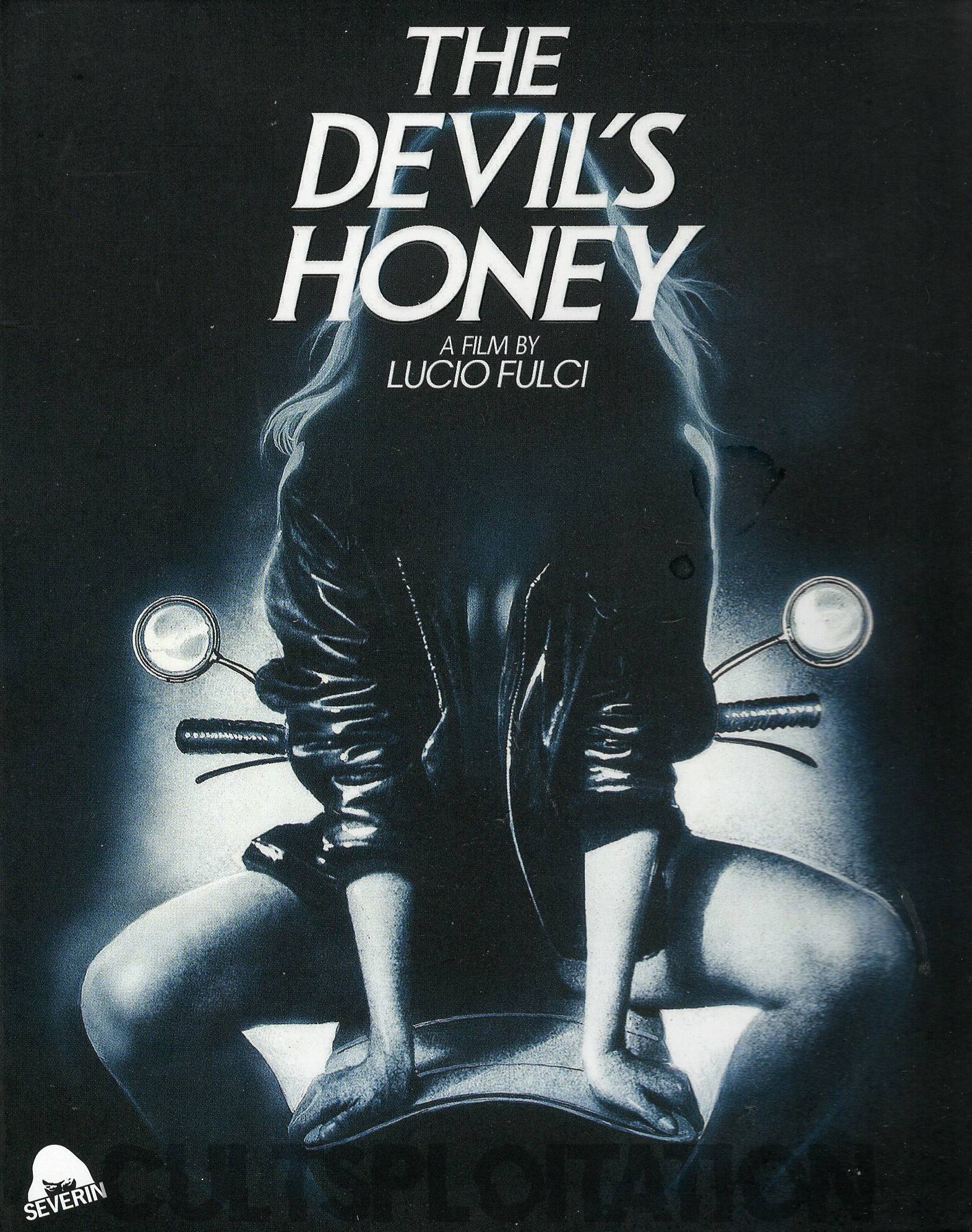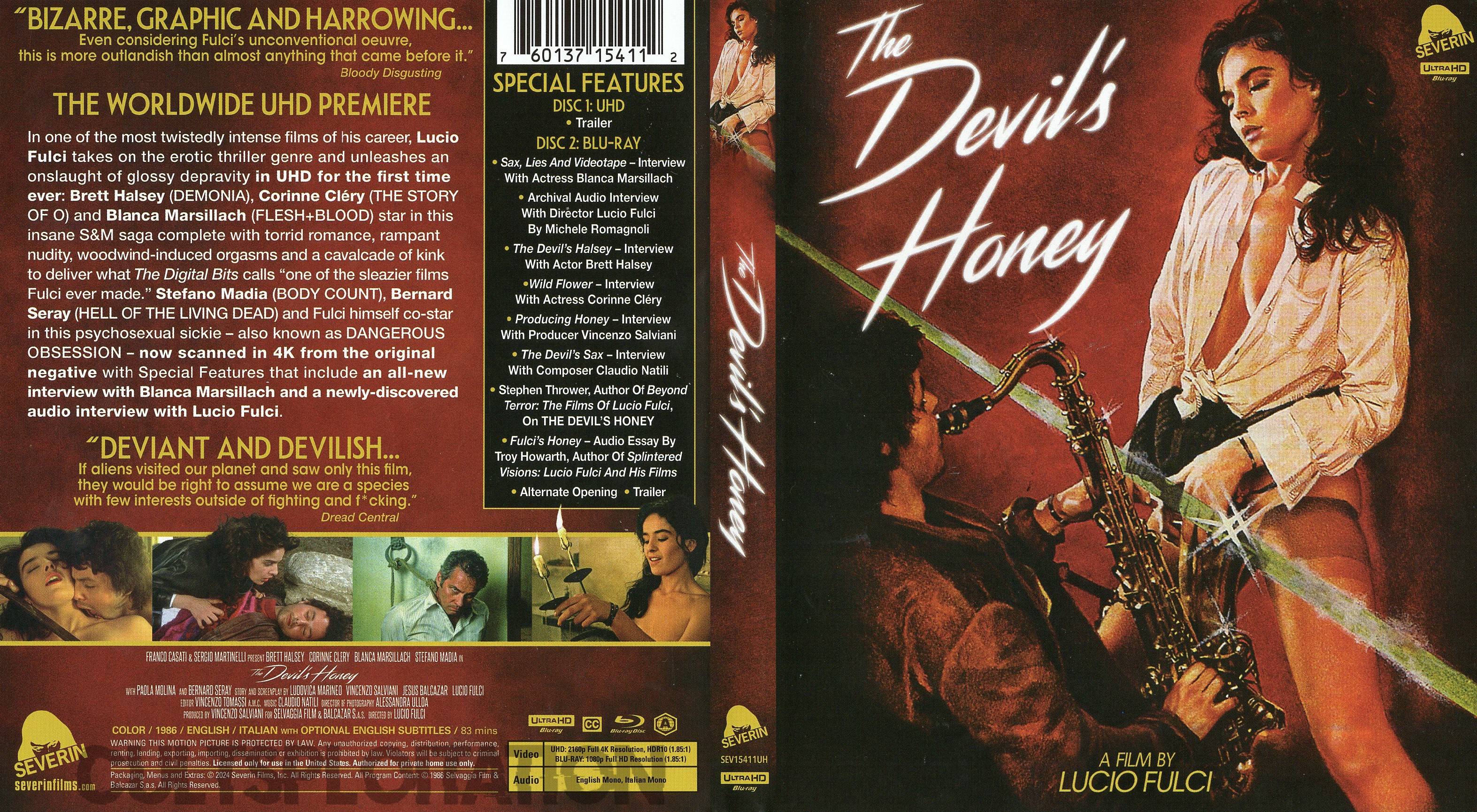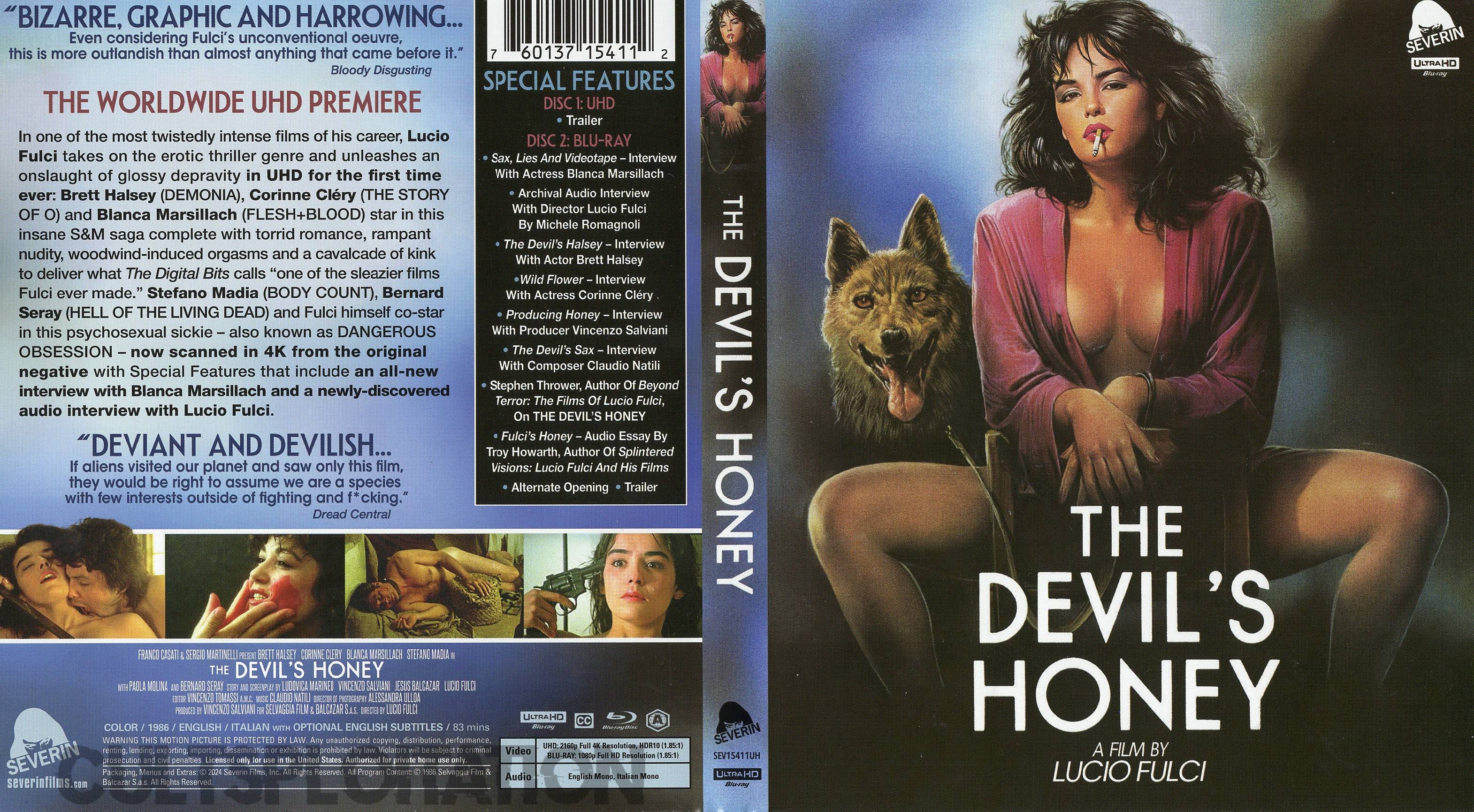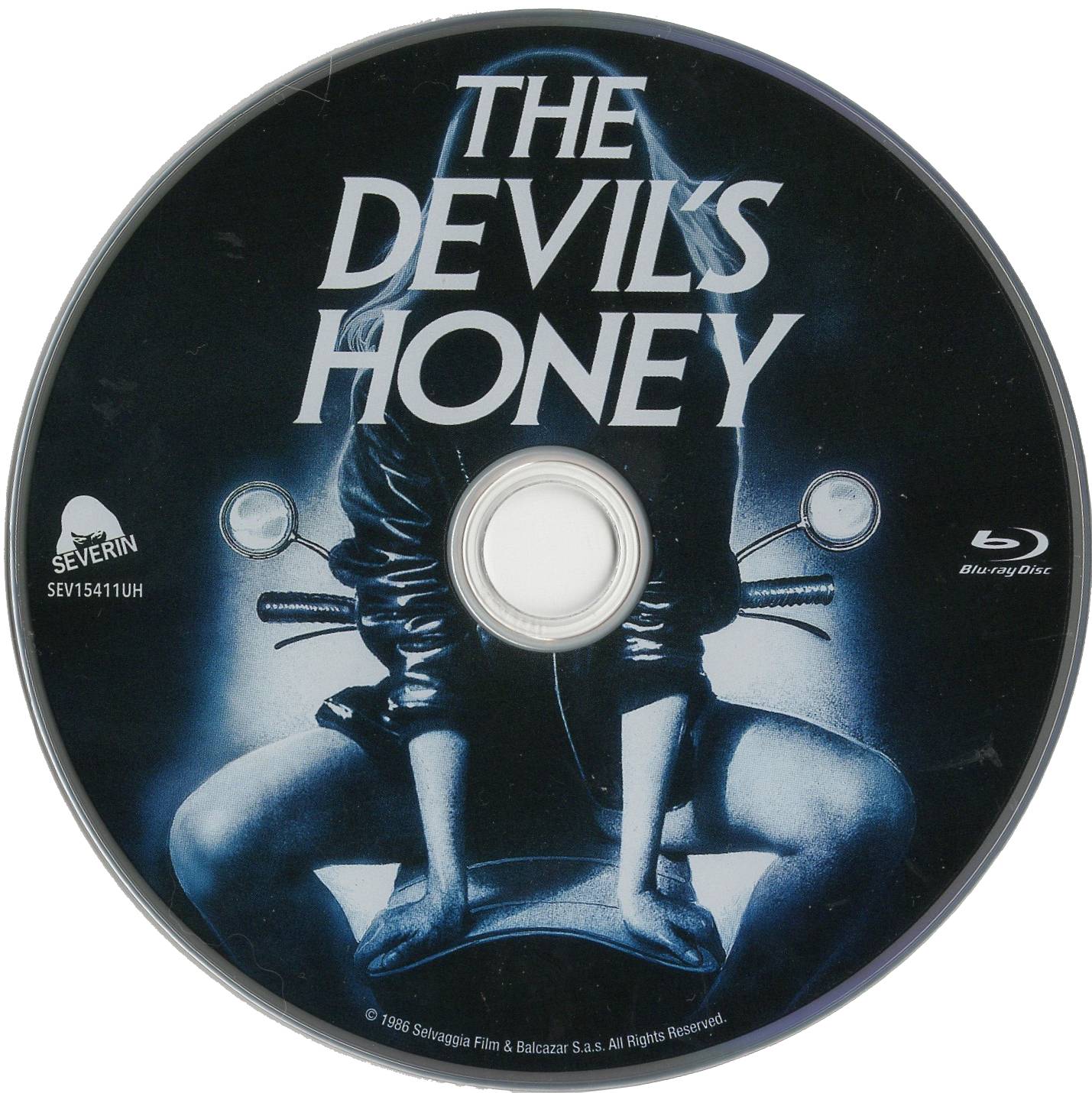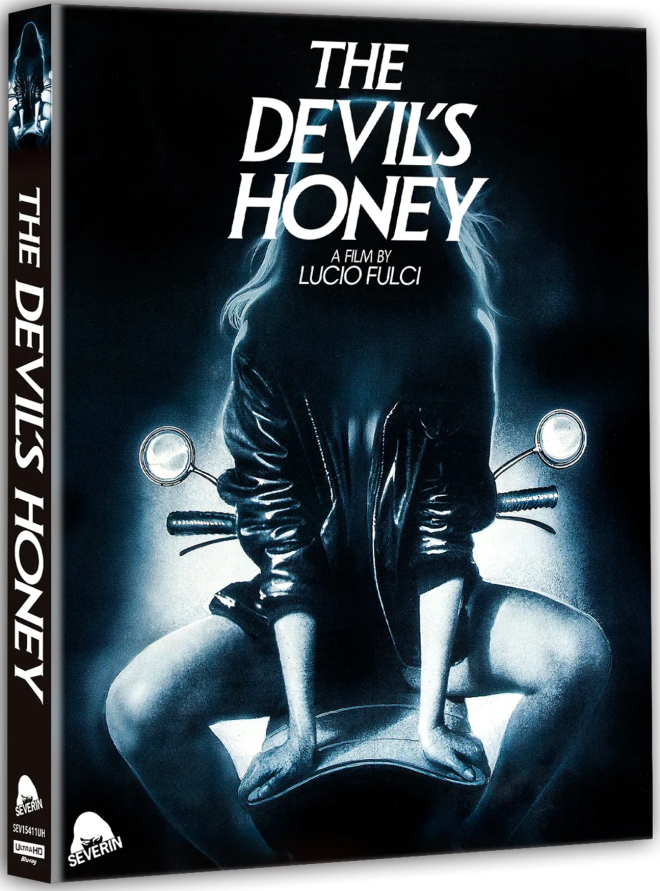
Ed. note: this film review appeared in a different form on this site previously.
Lucio Fulci’s follow-up to a slew of horror films in the early-to-late ’80s – including Murder Rock, The New York Ripper, and The House by the Cemetery – was not the expected giallo thriller or hardcore slasher but something much more erotic and tame in comparison: The Devil’s Honey (or Dangerous Obsession) is slow, dramatic, and anything but gory. Still, the film features a lot of the same themes that Fulci pursued previously, including abuse against women, leery sexual and borderline-pornographic scenes, and an emphasis on fetishistic tendencies. Despite its overtly erotic nature, The Devil’s Honey is still a thriller, albeit one that often confuses both itself and the audience on what its overall message is supposed to be.
Fulci follows two different characters in the first half of the film. Jessica (Blanca Marsillach) is dating the saxophonist Johnny (Stefano Madia), a guy who can be great when he wants to be but also sexually manipulative whenever he and Jessica are alone. Though he’s abusive, Jessica can’t shake the guy because she’s so enraptured with him, though Fulci never really gives a reason why that might be. On the other side of things is Dr. Wendell Simpson (Brett Halsey), a busy surgeon who has been going to prostitutes to get his kinks rather than dealing with his wife’s (Corinne Clery) needy feelings.
For quite a long time, these two stories exist in parallel to the other, with no real connections. Fulci operates as though these two ideas are two different stories until nearly 45 minutes later Jessica and Dr. Simpson meet – Johnny dies after hitting his head on a rock, and Dr. Simpson is unable to operate because he’s distraught about his wife leaving him. The crux of the plot finally opens up as Jessica begins to make sinister phone calls to the Simpson residence and then, finally, abducting Dr. Simpson at gunpoint.
While The Devil’s Honey waits a bit too long to get to the meat of the plot, Fulci’s characterization does work rather well. The film finds time to work in a number of sex scenes, obviously – and for the most part, these moments will be the most memorable thanks to the fetishism – but more often Fulci narrows his scope to showing two disparate relationships. One finds Jessica in a submissive role due to Johnny’s abusive side, and one finds Dr. Simpson in a more dominating element ultimately leading to his sexual boredom. The second half of the film flips this narrative so that Jessica, learning from Johnny after his death, becomes a dominatrix figure and harshly subjugates Dr. Simpson by placing all of the blame on him.
Fulci has some interesting ideas, although the ways The Devil’s Honey explores them isn’t always effective. The film oscillates between being overly dramatic and devilishly tongue-in-cheek; at times Fulci’s exploitative cinematography seems to clash with the potential seriousness of the plot in which two people discover the kinks and fetishes they never knew they had. Flashback sequences are curiously peppered throughout as Jessica tortures Dr. Simpson, leading to weird narrative jumps.
The conclusion, too, lacks a definitive meaning. It’s unclear what exactly Fulci means by his story – while Jessica does overcome her timidity, it’s hard to see the situation as anything but problematic. In some ways The Devil’s Honey simply identifies the reciprocal nature of sexual abuse; in others it seems as though it’s meant to be empowering, as a sort of sexual awakening. I’m not sure that either conclusion really stands out, leaving the film with an incomplete narrative arc. Still, The Devil’s Honey is full of sexy scenes, a great saxophone theme, and a couple of powerful domination moments, and Fulci’s film is worth a look because of its uniqueness compared to the rest of his oeuvre.
4K UHD
Severin Films has gone back to the honeypot with The Devil’s Honey. Having previously released the film in 2017 with an HD scan, they’ve restored it for their UHD release with a 4K scan from the original negative. Fulci’s film has always had a smeariness to it, especially in more lighted scenes, that almost give it a dream-like quality. Here, the 4K scan certainly enunciates some of that element, as well as bringing a lot more chunky grain to the forefront; the image is a bit crisper but overall one notices that much heavier grain presence. This may actually be a bit off-putting for some viewers, since it can give the appearance of obstructing detail. There’s a bit of damage here and there that can be quite notable, including some visible lines; the end credits specifically suffer from this element. The UHD features HDR-10 and prominently displays a varied color grading, and most apparent are the changes to the overall tone from the past Blu-ray; here, Severin Films has retained a much more natural cooler tone rather than their red-hued saturation on the old Blu-ray. Occasionally the film features more yellow, too (see screenshot of Marsillach with the candles); overall, the color changes are welcome and retain a pleasing saturated grade for the film. Despite these changes, though, it’s apparent that The Devil’s Honey will always have a sort of roughness to it, ultra definition or no.
Severin presents both the English and Italian language tracks with DTS-HD Master Audio 2.0 mono, both sounding quite good and featuring the pleasing saxophone soundtrack throughout. While neither dub is that great, I think I slightly prefer the English here. English subtitles are available, both for the English track and translated from Italian.
Extras are included on the Blu-ray disc of this release, and Severin has ported over all previous features from their 2017 Blu-ray as well as adding two new items. The first exclusive is an interview with Blanca Marsillach, who was never actually featured on the previous Blu-ray and was mostly lambasted by everyone as being difficult to work with; she discusses thinking Fulci took the sexual scenes too far, the lack of direction, and working with the other actors in the film. The second “new” offering is actually an unearthed archival audio interview with Fulci and Michele Romagnoli and they discuss The Devil’s Honey, another similar film The Trap, and even get into Misery a bit.
The rest of the extras were previously released and include interviews with Corinne Clery, producer Vincenzo Salviani, composer Claudio Natili, and actor Brett Halsey that add about 45 minutes of extra features. Also of note is an interview with critic Stephen Thrower on the merits of The Devil’s Honey and its context in Fulci’s career (about 25 minutes). Finally, there’s an audio essay from Troy Howarth about the film interspersed with stills.
Also included is the alternate title sequence with Dangerous Obsession and a trailer on both discs, plus double-sided cover artwork and a new slipcover.
Extra Features
Disc 1: 4K UHD (Feature + Special Features)
- NEW 4K scan from the original negative
- Trailer (1080p; 2:46)
Disc 2: Blu-ray (Feature + Special Features)
- NEW 4K scan from the original negative
- NEW Sax, Lies and Videotape – Interview With Actress Blanca Marsillach (1080p; 14:36)
- NEWLY DISCOVERED Archival Audio Interview With Director Lucio Fulci By Michele Romagnoli (1080p; 6:28)
- The Devil’s Halsey – Interview With Actor Brett Halsey (1080p; 17:26)
- Wild Flower – Interview With Actress Corinne Cléry (1080p; 12:13)
- Producing Honey – Interview With Producer Vincenzo Salviani (1080p; 13:22)
- The Devil’s Sax – Interview With Composer Claudio Natili (1080p; 9:51)
- Stephen Thrower, Author Of Beyond Terror: The Films Of Lucio Fulci, On THE DEVIL’S HONEY (1080p; 21:44)
- Fulci’s Honey – Audio Essay By Troy Howarth, Author Of Splintered Visions: Lucio Fulci And His Films (1080p; 16:56)
- Alternate Opening (480p; 6:23)
- Trailer (1080p; 2:46)
- NEW Webstore Exclusive Slipcover
- Reversible Wrap
Verdict
Severin Films has re-released The Devil’s Honey on 4K UHD with good picture quality, although the film seems to have hit its limit since the ultra-high definition emphasizes the heavy grain scale a bit too much to improve clarity; but the new color grading is a welcome change. Extras are numerous and the new interview with Blanca Marsillach offers extra incentive to upgrade.


